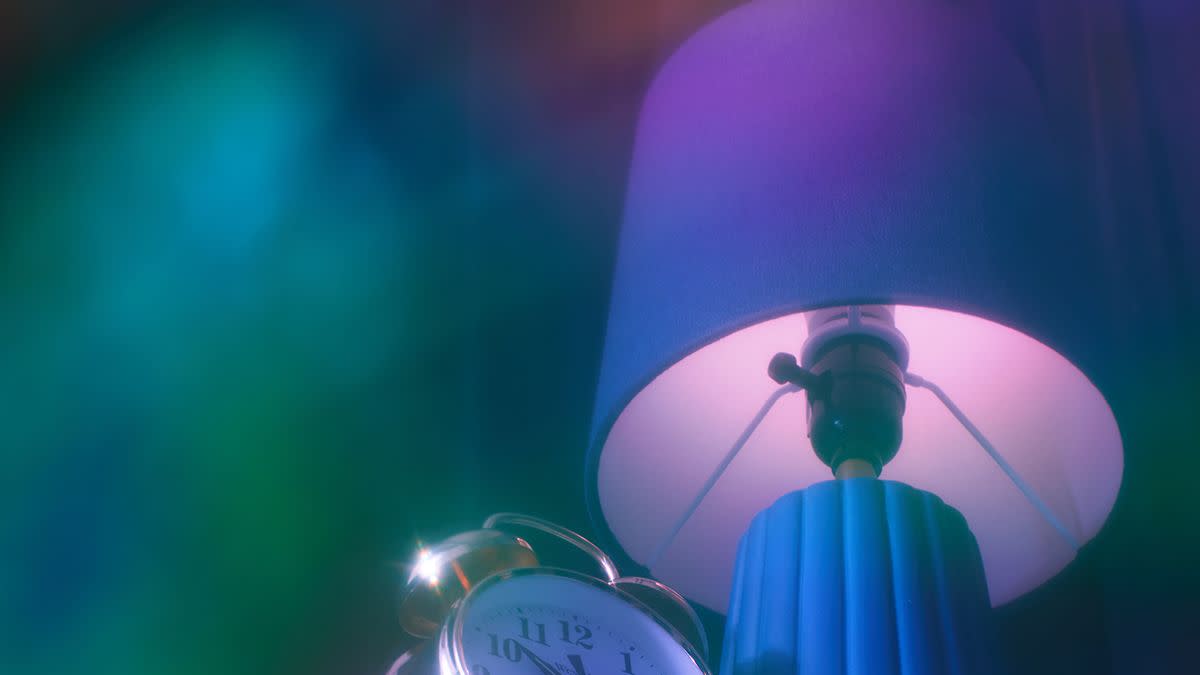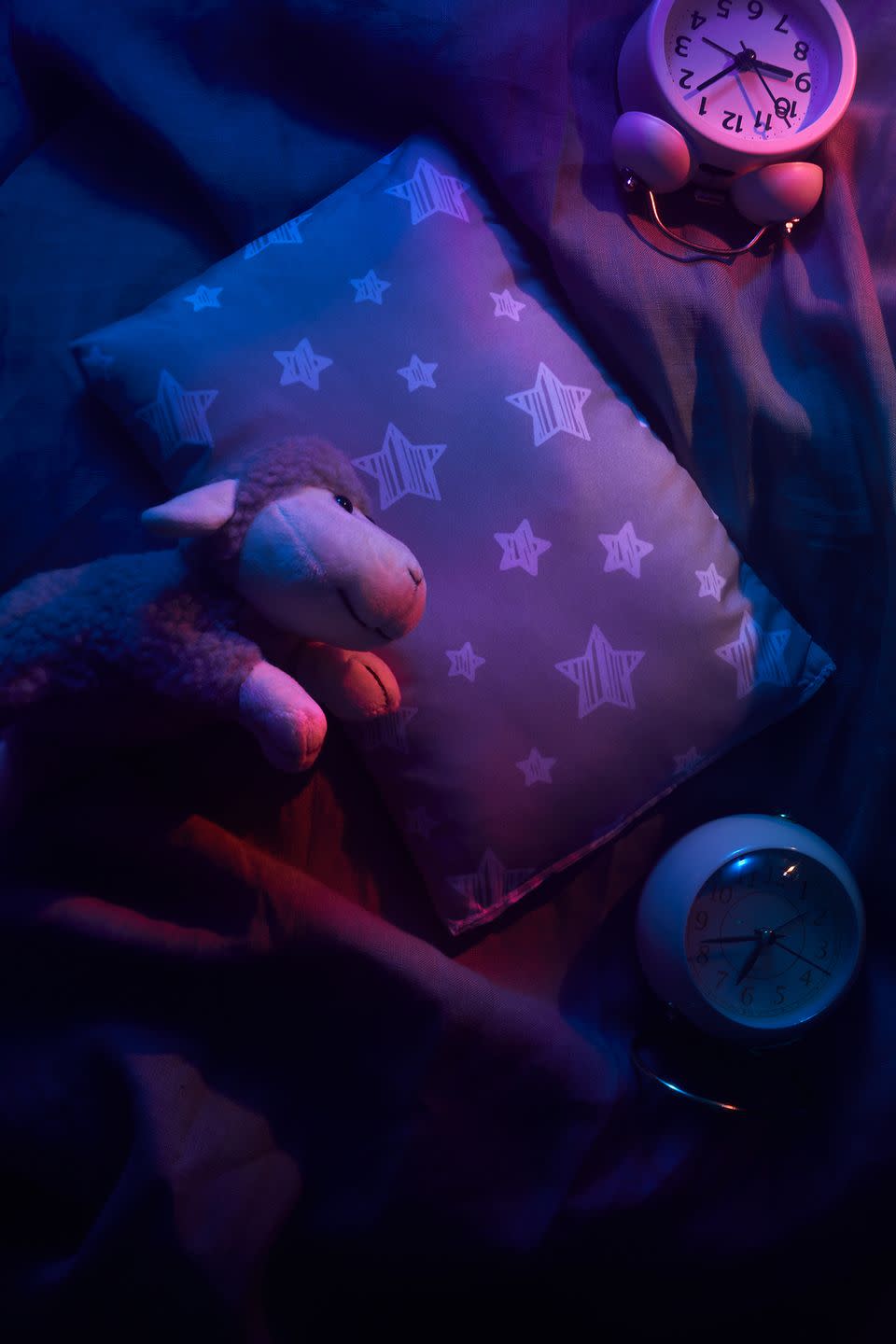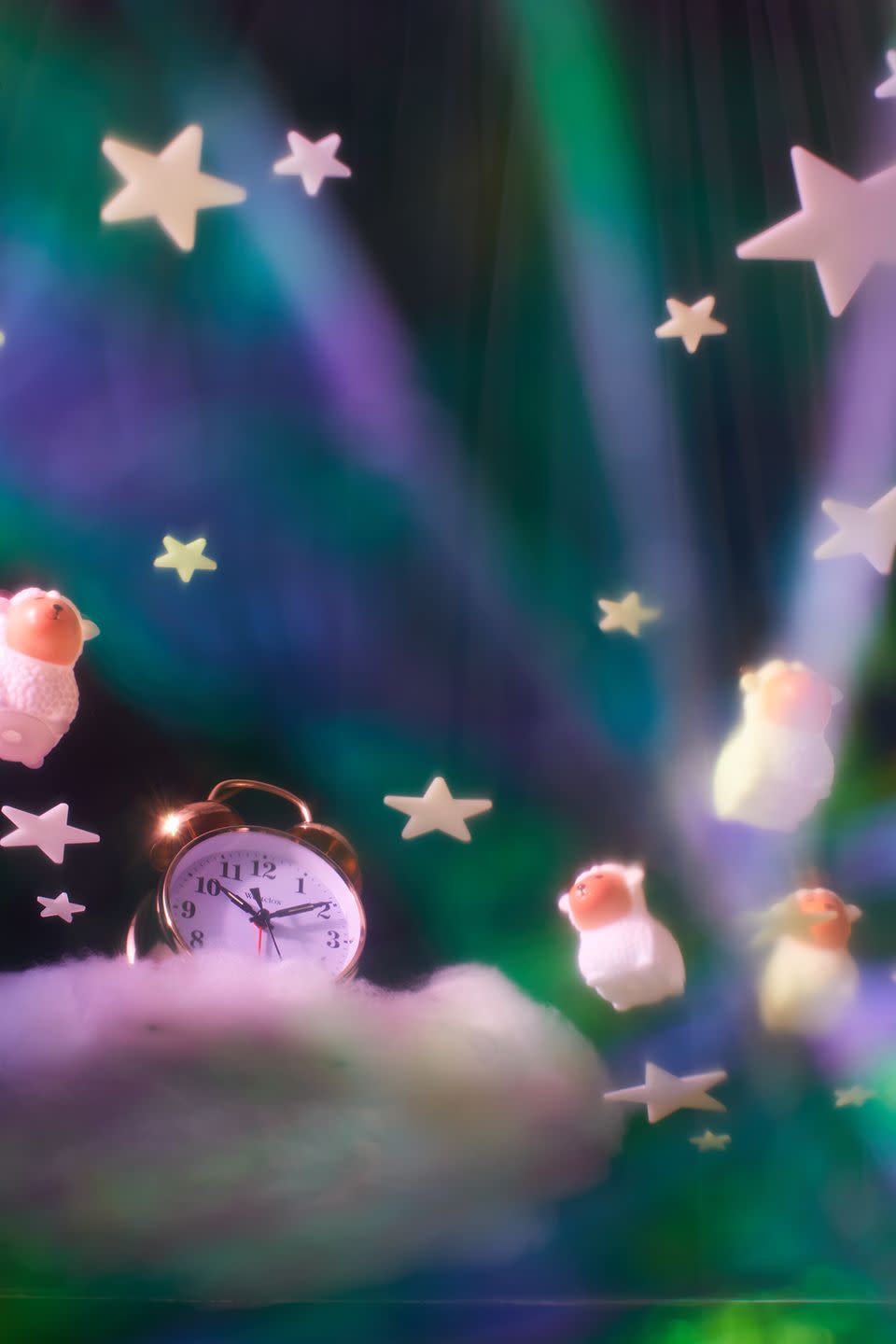Feeling a Rush of Anxiety Right Before You Fall Asleep? There's a Name for That

It’s 2 a.m. and you’re still not asleep — we’ve all had those nights where our mind won’t stop racing, and dreamland seems like a place we may never reach. Anxiety in general can definitely mess with your ZZZs and have you wondering, “why won’t my body let me sleep?” But when your chattering brain is spewing anxious thoughts about falling asleep in the first place, you may be experiencing something called sleep anxiety.
“Sleep anxiety occurs when someone feels worried or anxious about falling or staying asleep. People with sleep anxiety may have difficulty winding down at night, and they may also experience physical symptoms of anxiety such as a racing heart, sweating or shortness of breath,” explains Raj Dasgupta, M.D., chief medical advisor for Sleepopolis.
While this type of sleep behavior can be disruptive and seem hard to get a handle on, there are ways to overcome sleep anxiety and things you can do to help yourself conk out and stay asleep.
What is sleep anxiety?
What differentiates sleep anxiety from generalized anxiety disorder is that sleep anxiety is specifically focused on sleep — such as fear or anxiety around falling asleep, not getting enough sleep or not being able to stay asleep. “Some of my patients who experience this feel like something bad is going to happen to them while they are sleeping and others describe the feeling of needing to stay alert, which all keeps them from sleeping,” says Mike Sevilla, M.D., a family physician in Salem, Ohio.
It's very similar to a form of insomnia known as psychophysiologic insomnia, adds Dr. Dasgupta, where individuals associate bed not with rest and relaxation, but instead with a struggle to sleep. “What happens is that a pattern of sleep failure emerges. Over time, going to bed becomes a source of anxiety. You focus on your inability to sleep, the consequences of sleep loss, and the lack of mental control — and this makes falling asleep even more difficult,” Dr. Dasgupta says. “Eventually, excessive worry about sleep loss becomes persistent and provides an automatic nightly trigger for anxiety and arousal, leading to a continued cycle of insomnia.”
What are the symptoms of sleep anxiety?
Obviously, one main sign that you’re experiencing sleep anxiety is if you realize that you’re having difficulty snoozing due to consciously feeling worried, anxious or afraid about bedtime or how your sleep tonight will impact your tomorrow. But other symptoms you may notice while you’re in bed (trying to drift off) or during your waking hours include:
A sense of dread
Palpitations or rapid heartbeat
Sweating
Digestive problems
Muscle tension, especially around the jaw
Poor concentration
Low energy
Low motivation
Irritability
“As Shakespeare said, ‘troubled minds have troubled sleep,’ and I think vice versa is true, too. If you’re not sleeping well, you won’t feel well during the day,” says Robert Satriale, M.D., a sleep medicine specialist at Temple University Health System in Philadelphia.

What are the risk factors for sleep anxiety?
Anyone can experience sleep anxiety, but your chances become higher if you have poor sleep to begin with (often due to conditions such as sleep apnea, restless leg syndrome, narcolepsy or chronic pain syndrome); have a mental health condition such as generalized anxiety disorder, post traumatic stress disorder (PTSD), or ADHD; nightmare disorder; chronic stress; or if you are sensitive to changes in sleep schedule.
Your lifestyle and habits may also impact your likelihood of struggling with sleep anxiety, particularly in the evening and around bedtime hour — anything that may worsen anxiety at night such as reading the news, watching upsetting movies, using screens too close to bedtime, and "doomscrolling" can contribute, says Elizabeth Ortiz-Schwartz, M.D., child, adolescent and adult psychiatrist and team lead of the adolescent inpatient unit at Silver Hill Hospital in New Canaan, Connecticut.
“I always talk to my patients about good sleep hygiene habits such as stopping screentime (TV and phone) 30 minutes before bed, avoiding caffeine in late afternoon and evening, and trying not to have a big meal too close to when you’ll be trying to go to sleep,” Dr. Sivilla adds. Having alcohol before bed may also trigger sleep anxiety or nighttime awakenings that could lead to it.

How to treat sleep anxiety
There are several strategies that may help you sleep better with anxiety or sleep anxiety. “A good first step is to talk to your doctor about ways to improve your thoughts and behaviors regarding sleep (which may include sleep hygiene or stress management tips),” Dr. Dasgupta says. “They may then suggest cognitive behavioral therapy (CBT) with relaxation techniques, which is the cornerstone therapy for sleep anxiety. In some cases, medications can be also be added to help treat or reduce the symptoms of sleep anxiety depending on your individual situation.”
Sprucing up your sleep hygiene can also go a long way in improving sleep anxiety. Besides Dr. Sivilla's sleep hygiene tips above, “good sleep hygiene involves regular sleep and wake times, not doing strenuous exercise two to three hours before bedtime, no digital devices in bed and getting out of bed to do a relaxing activity in a dimly lit room if you can't fall asleep within 20 minutes,” says Alex Dimitriu, M.D., double board-certified in psychiatry and sleep medicine and founder of Menlo Park Psychiatry & Sleep Medicine in the Bay Area of California.
Other sleep-inducing tactics such as meditation and mindfulness, journaling earlier in the day about things that are causing you worry, and progressive muscle relaxation (basically, you focus on how it feels to relax and unfurl each muscle from head to toe) may also be helpful to some people with sleep anxiety, adds Dr. Ortiz-Schwartz.
Bottom line: Sleep anxiety is a very real condition that can have significant impact on your life. It differs from generalized anxiety, but still should be treated by talking with a medical professional or licensed therapist.
You Might Also Like
